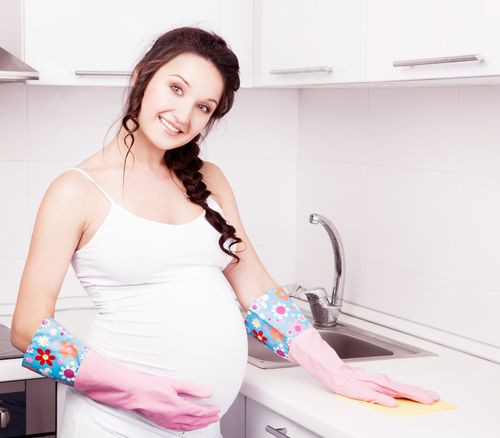Only 1 In 5 Obstetricians Counsel Pregnant Women About Toxic Household Chemicals

Are obstetricians responsible for counseling their pregnant patients about environmental health hazards? In a new survey conducted by the University of California, San Francisco, nearly 80 percent of obstetricians believe they have a role to play in helping their patients avoid known environmental hazards, but only a minority discuss with their patients how they might do so. “We have good scientific evidence demonstrating that pregnant women are exposed to toxic chemicals, and there’s a link between these exposures and adverse health outcomes in children,” said Dr. Tracey Woodruff, the study’s senior author. “But physicians are not offering this information to their patients.”
The Ugly Facts
Some industrial chemicals have never been tested for potential harm and most have never been tested in combination with other chemicals for potential harm. This means even if one chemical alone is not likely to harm you, when it mixes with another equally harmless chemical in the air you breathe or the water you drink or the food you eat, the combined effect may be radically different. Daily, we are exposed to hazardous environmental materials, despite the fact that they are linked to negative health outcomes. In fact, one study found that virtually all pregnant women in the U.S. had measureable levels of at least 43 different environmental chemicals in their bodies, and, in some cases, at levels said to potentially cause negative developmental and reproductive health outcomes.
To evaluate obstetricians' attitudes, beliefs, and practices related to environmental health, the team of UC San Francisco researchers developed a 64-question survey, which was then approved for use by the American Congress of Obstetricians and Gynecologists (ACOG). One in five of the total 2,500 physicians surveyed said they routinely asked about these exposures, while just one in 15 said they had received training on the harmful reproductive effects of toxic chemicals measured in American pregnant women.
Surveyed doctors said they didn’t know enough or were too uncertain of the evidence to feel comfortable making firm recommendations to pregnant women. They also said their patients often have more pressing and immediate health concerns, such as poor diet, sedentary lifestyles, obesity, and chronic medical conditions like diabetes. In focus groups, physicians said they were afraid of scaring their patients, since it’s almost impossible to avoid being exposed to the chemicals found in thousands of household products.
“Many environmental exposures are unavoidable,” Dr. Naomi Stotland, the study’s lead author, said in a press release. “So, we counsel women on the substances that we know are most likely to cause harm, while providing them with practical ways of reducing their exposures.”
Previous studies have shown that women want to know about the adverse effects of the chemicals they’re exposed to and that they can react productively to this information. The authors said that if physicians had better training and evidence-based guidelines, they could be more proactive, without fear of unduly alarming their patients.
Source: Stotland NE, Sutton P, Trowbridge J, et al. Counseling Patients on Preventing Prenatal Environmental Exposures - A Mixed-Methods Study of Obstetricians. PLOS One. 2014.
Published by Medicaldaily.com



























